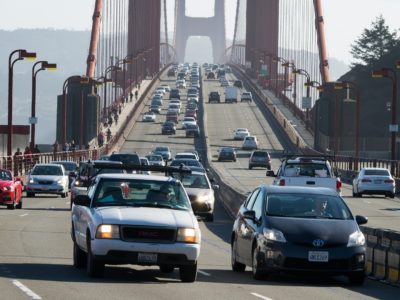The California Car Waiver and the Congressional Review Act
Legal Planet: Environmental Law and Policy 2025-02-18

The Biden Administration issued several EPA waivers allowing California to regulate vehicle emissions more strictly and increase use of electric vehicles. The Trump Administration has now reported them to Congress, which triggers possible congressional action under a statute called the Congressional Review Act (CRA).
is especially egregious because the waivers clearly aren’t covered by the CRA, which only applies to agency rules. A waiver for three specific state policies isn’t an EPA rule.
Ann Carlson had a great post earlier explaining the situation, but I’d like to add a few additional comments.
First, a Congressional action overturning the California waivers would be especially bad because of its future effect. Under the CRA, if an agency rule is overturned, the agency can’t pass a rule that is “substantially the same” in the future – in this case, a waiver of a substantially identical California regulation. However, no one is sure of the scope of that prohibition on future rules. This would complicate further efforts by California to clean up its vehicle fleet.
Second, it’s true that congressional Republicans don’t like the California waivers and are also abjectly deferential to Trump. But I don’t think passage of a CRA resolution is a done deal. Here are some reasons that Republicans might hesitate:
- Republican legislators with districts in LA or the Central Valley might face constituent complaints about worsening pollution.
- A good number of Republicans in the House now have major factories in their districts manufacturing EVs or EV batteries, which would be hurt if the waiver is overturned.
- If the Senate Parliamentarian advises that the waivers aren’t covered by the CRA, that could give Republicans some cover for a no vote.
- Applying the CRA to the waiver would create a legislative precedent for applying it to other things that aren’t agency rules, such as other waivers for states or businesses and maybe permits for oil and gas pipelines.
- Overturning the waiver would make Democrats that much less likely to cooperate on funding the government or raising the debt ceiling, where the Speaker may need their votes.
I don’t know whether these considerations would be enough to sway a few Republican votes, but I wouldn’t give up hope yet.
Third, the CRA resolution killing the current waivers does go through, all is not lost. California can wait until after the midterms, when Democrats are favored to take the House, and then try again to get a waiver for differently formulated regulations. When the Trump Administration rejects them, it could then litigate whether the new versions were “substantially the same” as the old ones.